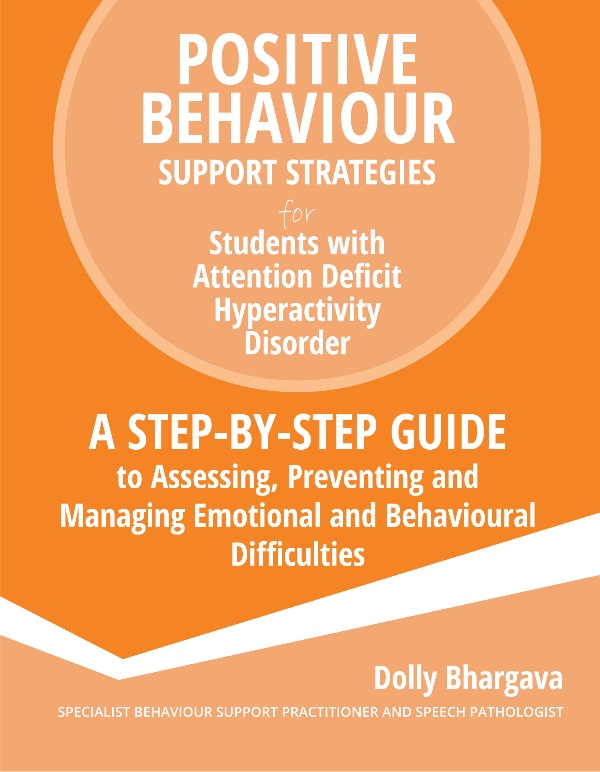PBS for Attention Deficit Hyperactivity Disorder (ADHD) Online Course
Positive Behaviour Support (PBS) Strategies for Children and Adolescents with Attention Deficit Hyperactivity Disorder (ADHD) is a comprehensive ADHD online course for parents, educators and mental health professionals. It provides a toolkit of evidence-based and practical strategies to manage ADHD and promote focus, regulation and participation at home, in the classroom, and in the community.
Through this self-paced, CPD-certified training, you’ll gain a deeper understanding of ADHD, learn how to assess and manage symptoms, and develop proactive plans that support learning, wellbeing and relationships.
What is Attention Deficit Hyperactivity Disorder (ADHD)?
Attention Deficit Hyperactivity Disorder (ADHD) is a neurodevelopmental condition characterised by persistent patterns of inattention, hyperactivity, and impulsivity that interfere with daily functioning. ADHD affects both children and adults, though the symptoms and challenges may present differently across later life stages.
According to the Diagnostic and Statistical Manual of Mental Disorders, 5th Edition (DSM-5), ADHD is classified into three main types: predominantly inattentive, predominantly hyperactive-impulsive, and combined presentation.
How is ADHD Diagnosed?
An ADHD diagnosis describes whether someone has ADHD or not and is based on a detailed assessment of behavioural, cognitive and emotional patterns. This may include standardised assessments, observations, interviews with caregivers and teachers, and review of developmental history. Only qualified healthcare professionals or mental health specialists can make a diagnosis in accordance with NICE guidelines and recognised best practice frameworks.
Early and accurate diagnosis and treatment can significantly improve outcomes, helping the child or adult to develop stronger learning, social and self-regulation skills.
What Causes ADHD?
The causes of ADHD are complex and involve multiple risk factors, including:
-
Genetic factors: ADHD often runs in families and can be linked to hereditary traits. ADHD can occur in young people or adults (adult ADHD).
-
Brain changes: Neuroimaging studies have shown differences in areas of the brain that control attention, impulse regulation, and executive functioning.
-
Environmental influences: Exposure to toxins, stress, or certain prenatal conditions may contribute to the development of ADHD.
-
Psychosocial factors: Family stress, mental health, inconsistent routines, and poor sleep can increase challenges in children with ADHD.
The latest adhd research describes these factors interacting and aims to lead to better understanding of ADHD and more effective treatments.
What are the Symptoms of ADHD?
ADHD symptoms typically fall into two categories: inattentive and hyperactive/impulsive. A child or adult with ADHD may:
Inattentive behaviours
-
Have difficulty sustaining attention or completing tasks.
-
Make careless mistakes in schoolwork or work activities.
-
Appear not to listen when spoken to directly.
-
Struggle to follow instructions or stay organised.
Hyperactive and impulsive behaviours
-
Fidget or move excessively when seated.
-
Find it hard to wait their turn or control impulses.
-
Interrupt conversations or activities.
-
Experience restlessness or difficulty engaging in quiet activities.
These behaviours can vary in frequency, intensity and duration, and may be influenced by the environment and other mental health problems such as anxiety or learning difficulties.
How is ADHD Treated and Managed?
ADHD can be successfully managed with a combination of behavioural strategies, environmental adjustments, and in some cases, medication. The Positive Behaviour Support (PBS) approach emphasises understanding the purpose of the behaviour, creating supportive environments, and teaching replacement skills.
Effective ADHD treatments may include:
-
Behavioural interventions: structured routines, clear expectations, and positive reinforcement.
-
Educational support: classroom accommodations, visual aids, and consistent communication between teachers and parents.
-
Therapies: cognitive-behavioural strategies to improve emotional regulation and problem-solving.
-
Medication: prescribed and monitored by qualified health professionals where appropriate.
The goal is to enhance attention, motivation, and emotional wellbeing, enabling the person with ADHD to thrive across all areas of life.
Who is this ADHD Course For?
This ADHD training is suitable for:
-
Parents and families supporting children with ADHD.
-
Educators and teaching staff working in mainstream or special education settings.
-
Mental health and healthcare professionals working in practice and seeking continuing professional development (CPD) in ADHD and Positive Behaviour Support.
The course can be completed at your own pace, allowing flexible access to expert-led content and resources based on the latest scientific evidence base, expertise and ADHD research.
Course Benefits
At the end of this ADHD online course, you will have:
-
A toolkit of strategies to assess, manage, and prevent challenging behaviours seen in people with ADHD.
-
Practical tools to develop and apply a personalised behaviour support plan.
-
A certificate of completion for 5 hours of professional development.
-
A free course book: Positive Behaviour Support for Students with ADHD.


